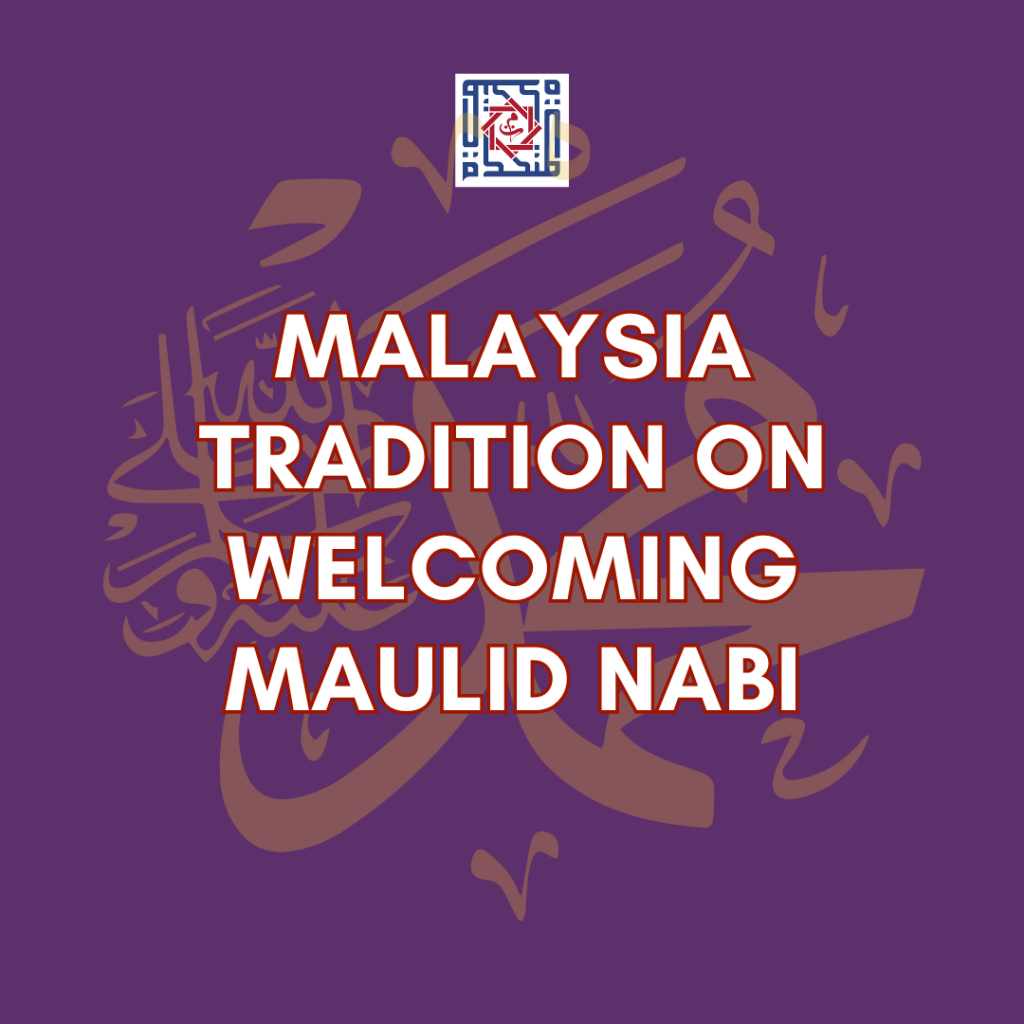
In Malaysia, the celebration of Maulid Nabi (Mawlid al-Nabi) or the birth of the Prophet Muhammad is marked by various traditions and customs that reflect the country’s Islamic heritage and cultural diversity. The event is both religious and cultural in nature, and Malaysians embrace it with joy and reverence. Here are some common traditions and practices in Malaysia during Maulid Nabi:
1. Processions (Perarakan Maulidur Rasul)
- One of the most prominent traditions is the Perarakan Maulidur Rasul, a procession where large groups of people, often organized by mosques, schools, and local communities, march through the streets while chanting praises to the Prophet Muhammad (salawat) and carrying banners with Islamic messages.
- Participants often wear traditional Malay attire, and some may carry symbolic items such as flags and posters of Islamic calligraphy.
2. Religious Ceremonies
- Special prayers, known as solat sunat Maulidur Rasul, are held in mosques across the country. These prayers are followed by the recitation of the qasidah (Islamic poetry) and salawat (praises for the Prophet).
- Islamic scholars may also deliver sermons and lectures (ceramah) focusing on the life and teachings of Prophet Muhammad.
3. Reading of Sirah (Prophet’s Biography)
- The Prophet’s life story (Sirah Nabawiyah) is often read in religious gatherings. These readings serve as a reminder of the Prophet’s virtues and moral character, inspiring Muslims to follow his example.
4. Community Feasts (Kenduri)
- Feasting is another important part of the celebration. Communities often organize kenduri or communal meals at mosques, homes, or public spaces, where traditional Malay dishes such as nasi minyak, rendang, and bubur lambuk are served.
- These gatherings foster a sense of community and are an opportunity for charity and goodwill.
5. Decorations and Lights
- Some mosques and community centers are beautifully decorated with lights and Islamic motifs. In some places, special lanterns are lit in honor of the Prophet’s birth.
- Although the decor tends to be more subdued compared to other festivals, it reflects the spiritual joy of the occasion.
6. Quran Recitations
- Recitations of the Quran, especially verses that recount the life of Prophet Muhammad, are performed in mosques and religious schools.
- This practice helps emphasize the connection between the Prophet’s life and Islamic teachings.
7. Competitions and Cultural Activities
- Various competitions such as Quran recitation contests, Islamic quiz competitions, and speeches (pertandingan berpidato) about the Prophet’s life are held during this time.
- Students in schools and religious institutions are often encouraged to participate in these activities to deepen their knowledge of Islamic history.
8. Acts of Charity
- Many Muslims in Malaysia take this time to engage in charitable acts such as giving food to the poor, making donations, and helping those in need. This reflects the Prophet’s teachings on generosity and compassion.
These celebrations are observed nationwide, from urban centers to rural villages, often with local variations that highlight Malaysia’s multi-ethnic culture. Although some communities may choose to celebrate Maulid Nabi with more solemn religious observances, the overall spirit is one of joy, reflection, and unity.
